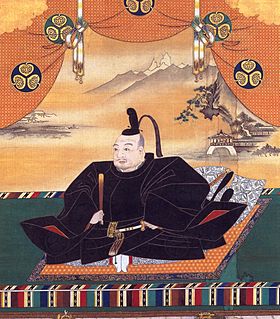A Quote by Nathaniel Hawthorne
Trusting no man as his friend, he could not recognize his enemy when the latter actually appeared.
Related Quotes
Friend, my enemy, I call you out. You, you, you there with a bad thorn in your side. You there, my friend, with a winning air. Who pawned the lie on me when he looked brassly at my shyest secret. With my whole heart under your hammer. That though I loved him for his faults as much as for his good. My friend were an enemy upon stilts with his head in a cunning cloud. -Dylan Thomas
How much reverence has a noble man for his enemies!--and such reverence is a bridge to love.--For he desires his enemy for himself, as his mark of distinction; he can endure no other enemy than one in whom there is nothing to despise and very much to honor! In contrast to this, picture "the enemy" as the man of ressentiment conceives him--and here precisely is his deed, his creation: he has conceived "the evil enemy," "the Evil One," and this in fact is his basic concept, from which he then evolves, as an afterthought and pendant, a "good one"--himself!
A man who gives way to his passions is like a man who is shot by an enemy, catches the arrow in his hands, and then plunges it into his own heart. A man who is resisting his passions is like a man who is shot by an enemy, and although the arrow hits him, it does not seriously wound him because he is wearing a breastplate. But the man who is uprooting his passions is like a man who is shot by an enemy, but who strikes the arrow and shatters it or turns it back into his enemies heart.
This sutra enjoins a rule of morality. It says nobody should be disrespected. A man can impress evdrybnody by his virtues. Disrespecting others means downfall of our own virtues. A person who disrespects others, in a way disrespect himself. A virtuous man does not disrespect his friend or vevn his enemy. Disrespect to enemy can investigate him toreact. The best thing is to destroy him completely. For a ruler this is very important.
To say that a man is your Friend, means commonly no more than this, that he is not your enemy. Most contemplate only what would be the accidental and trifling advantages of Friendship, as that the Friend can assist in time of need by his substance, or his influence, or his counsel. Even the utmost goodwill and harmony and practical kindness are not sufficient for Friendship, for Friends do not live in harmony merely, as some say, but in melody.
Always man needs woman for his friend. He needs her clearer vision, her subtler insight, her softer thought, her winged soul, her pure and tender heart. Always woman needs man to be her friend. She needs the vigor of his purpose, the ardor of his will, his calmer judgment, his braver force of action, his reverence and his devotion.
No man can expect to find a friend without faults; nor can he propose himself to be so to another. Without reciprocal mildness and temperance there can be no continuance of friendship. Every man will have something to do for his friend, and something to bear with in him. The sober man only can do the first; and for the latter, patience is requisite. It is better for a man to depend on himself, than to be annoyed with either a madman or a fool.
How so? Briefly, apart from the gospel and outside of Christ, the law is my enemy and condemns me. Why? Because God is my enemy and condemns me. But with the gospel and in Christ, united to him by faith, the law is no longer my enemy but my friend. Why? Because now God is no longer my enemy but my friend, and the law, his will—the law in its moral core, as reflective of his character and of concerns eternally inherent in his own person and so of what pleases him—is now my friendly guide for life in fellowship with God.






































